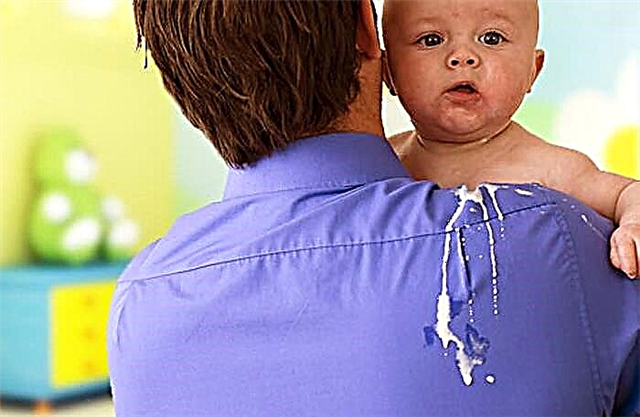
This is very painful. Scary and insulting. Divorce has never been satisfying to anyone. Even if the spouses part by mutual desire (which does not happen so often), even if they did everything “in a civilized manner”, both experience disappointment, pain, and loss. In Russia today, according to statistics from Rosstat, about 50% of families break up. Moreover, most of the divorces occur in those families where the husband and wife have been married for 5 to 9 years. This is a long time. And, as a rule, there are already children in such cells of society.
Situations, of course, are different, and sometimes divorce really becomes the only reasonable way out, but only adults make the decision to break up. And children - always, in all cases without exception, become hostages of parental divorce.

Every child, regardless of age and temperament, upbringing, religion, citizenship and place on the social ladder, loves his mom and dad equally strongly. For him, the loss of contact with any of them is not even a trauma, but a real disaster.
To at least roughly imagine how your child is feeling, take your experiences as a basis and multiply them by two. And that won't be all.
Influence on the psyche of the child
Oddly enough, parental divorce affects the unborn children the most. If it so happened that the family broke up during a woman's pregnancy, the baby in her womb is experiencing the spectrum of her mother's negative emotions, he is attacked by incredible doses of stress hormones. A baby can be born with serious disturbances in the work of the nervous system, in the psyche. In 90% of cases, such children are very anxious, capricious, and often get sick.

Both infants and older children feel discord in the family. What are they experiencing?
Outwardly, your offspring may not show anything, especially if the conflict on the home front has developed for a long time, and everyone is already pretty tired of screaming, showdown and slamming the door. In this case, the child is likely to treat divorce as the logical conclusion of a difficult period. But inside it will blaze fires and erupt volcanoes, because internal stress (by the way, the most dangerous for human life and health) will not go away by itself. It accumulates and grows.
Often the complex of his own guilt for what happened to him "helps" him. This happens with children aged 2 to 7 years. The fact is that a child, due to his age, cannot understand all the real reasons for the divorce of his parents. Therefore, he "appoints" the guilty one - himself. "Dad left because I am bad." “Mom left because she didn’t listen to her.” This terrible state tears the child's soul in two. One stays with mom. The other is with her father. Plus self-dislike. The result is fears (up to the development of phobias), tantrums, aggression or the other extreme - isolation and tearfulness.

If you do not provide assistance to such children in time, the consequences will be dire - mental disorders, the inability to build their own families in the future.
Children 9-12 years old go to the other extreme - they begin to feel strong anger at the departed parent (usually dad), resentment, they have a feeling of their own uselessness. Especially if the remaining parent rushes to arrange his personal life - to look for a new "dad" or "mom". The child is left alone with his trouble.

Teenagers usually meet the news of divorce with strong protest, especially if the family was happy or seemed so. Boys are more "buzzing", they categorically accuse their mothers that daddy left, or, on the contrary, trample on the father's authority and take the mother's side. Thus, they suppress the masculine principle in themselves and launch the "self-destruction" program. Teenage girls experience parental divorce more subtly, but not less strongly.

Many teenagers admit that they have begun to experience burning shame for an incomplete family in front of their peers. And almost all children from families where recently there was a divorce, intellectual abilities are reduced. Children begin to study worse, become scattered, disorganized.
The stress of a parental divorce at any age can be so intense that a child becomes physically ill. Some older guys start peeing at night. In adolescent girls, the menstrual cycle fails. It is not uncommon for children to develop manifestations of allergies and skin diseases. Chronic ailments are aggravated.
The most difficult period is the first time after the divorce. Somewhere around 6 - 8 weeks, you will be unbearably sad, lonely, hurt and scared. And then the stage of adaptation to a new life will last for another six months. It is important that it is during this period that we, adults, make an effort over ourselves, curb our negative emotions and organize the child's life correctly. Because it is doubly harder for him. Remember this.

You can find out how a child feels about a parental divorce by watching the following video.
How to tell your child about divorce
If the decision has already been made, and it is final and irrevocable, clearly plan the conversation with your children. If the fact of parting is not yet obvious, do not rush to "shake the nerves" of your child. It is necessary to speak only when there are no false hopes for family reunification.
Who should tell about the upcoming divorce? It's up to you to decide. More often, the mission of a messenger with bad news goes to mom. But it can be both dad and both spouses together. If you can't find the strength to keep your emotions under control, entrust the important conversation to your child's grandparents, aunt, or uncle. The main thing is that the baby should trust the person who undertook to explain to him the immediate prospects of the family. And be sure to try to be present at this conversation yourself.
You need to carefully prepare for an important conversation. In your adult head, arrange everything on the shelves so that you are ready for any child's questions.

You need to choose the right time to talk. Best of all, if it is a day off, when the offspring does not need to go to school, to kindergarten and to classes in the section. At the same time, he should not have any important business or important event planned. It is not known how the baby will take the bad news. Hysterics may occur, he may need solitude. Let the conversation take place at home, in a familiar environment.
Who should I talk to?
All children are worthy of the truth. But not all of them, due to their age, will be able to accept your truth, and even more so to understand it. Therefore, it is better not to discuss the upcoming divorce with a child who is not yet 3 years old. Wait for the little one to start asking questions himself. And he will soon ask where dad is, why he comes only on weekends, where he lives. Prepare your answers. There is still time.

Children from 3 and older must definitely inform about the upcoming divorce. The main principle is this: the younger the child, the less details he should be told.
How to build a conversation?
Fair. Straight. Open.

- Express yourself in simple words that a child understands at his age. The use of unfamiliar clever expressions and terms, the meaning of which the child does not understand, will cause anxiety and even panic.
- The older the child is, the more frank your conversation should be. Use the pronoun "we". "We have decided", "We have consulted and want to tell you." Talk about divorce as unpleasant but temporary. Ask your teenager for help to get through a difficult period. "I can't cope without you", "I really need your support." It will be easier for children to get through the period, knowing how you need it.
- You need to speak honestly. Focus on your feelings, but don't go overboard. "Yes, it really hurts and unpleasant for me, but I am grateful to my dad that we have such a wonderful and beloved you." Emphasize that divorce is, by and large, a normal process. Life is not over, everything continues on. The main thought when talking with a child should be that dad and mom will continue to love their son or daughter, take care, educate. They will simply no longer live together.
- You shouldn't lie to the child, explain the absence of dad or mom with “urgent matters in another city”. Children have excellent intuition, and even if they do not know the true reasons for the catastrophe occurring in the house, they will perfectly feel your lie. And this misunderstanding will horrify them. Plus, they may stop trusting you.

Telling your child about the upcoming divorce, you need to avoid negative assessments of your recently beloved soulmate. The kid does not need your dirty details - who cheated on whom, who stopped loving whom, etc. For him, both parents should remain good and loved. When he grows up, he will figure it out himself. But if the separation is due to the pathological dependence of one of the family members - alcoholism, drug addiction, gambling, it is pointless to hide it. However, it is necessary to speak on this topic correctly and accurately.
What shouldn't you do?
Divorced parents tend to make the same mistakes. The main one is the obsession with one's own experiences, the inability to put oneself in the child's place. It is stupid to demand complete adequacy from people in a state of extreme stress, and therefore just remember what you cannot do during a divorce in the presence of a child:

- Find out the relationship, use offensive and derogatory expressions, exaggerate the details of the upcoming divorce, division of property. You will find out who owes whom and how much in the courtroom or when the child is not at home. An overheard conversation of such content can give a growing person a reason for reflection on the topic: "How can they talk about an apartment and a car now that our family is crumbling?" This will form wrong attitudes for the future - the material will be more important than the spiritual.
- Cry, throw tantrums. Your negative outburst painfully hits the child in the most vulnerable place. Want to cry? Go to a friend, to your mother, to a psychotherapist. There you can easily cry and complain about the "ungrateful brute."
- Dramatically change the order of life and family life. Let everything flow in the usual rhythm for the child after the divorce. Even without moving it is nowhere harder for him.
- Manipulate a child in a relationship with an already ex-second half, limit communication with the father.
- To emphasize to the child his resemblance to his ex-spouse (wife) if he did something bad. You cannot shout at the son who broke an expensive vase that he is "all in a father." The image of a dad will be associated with a child exclusively with bad deeds. And this behavior does not paint you.

Psychologist's advice
- Do not hesitate to seek help from a specialist. Divorce is too stressful and a severe test for the psyche of adults. For a child, it is comparable to a nuclear disaster. Often, without the help of an experienced psychologist, neither you nor the child can cope with this.
- Children in a family that is falling apart or has already fallen apart need attention doubly. Take the time to make sure that stress does not get out of hand and turn into severe depression or mental illness in your child.
- Try to spend the weekend as before with the whole family. Of course, if the relationship with the spouse remained friendly. It will take a lot of self-control and self-control from the woman, but it's worth it. In such an environment, it will be easier for a child to get used to a new life.
- Do not take your evil off on a child. Do not listen to counselors who insist that a boy left without a father's upbringing needs to be raised harder and more severely. Such mothers grab the belt with or without reason, tighten the punishment system and gradually become real dictators.
Another category of mothers after a divorce is trying to compensate the child for the absence of a father with gifts and affection. As a result, they have spoiled, pampered sons who find it difficult to become real men.
For information on how to raise a child without a father, see the video of clinical psychologist Veronica Stepanova.
How to help yourself and your child get through a divorce can be seen in the following video.
After divorce
Divorce is, of course, a serious trauma for a child, but sometimes it is better than continuing to live in a family where there has been no mutual understanding, respect for a long time, where parents compete who will shout louder or slam the door. The consequences of divorce for a child in the future are often less serious than the consequences of living in an inappropriate aggressive environment.

It is good if the child can continue to communicate with the father and his relatives after the divorce. If this is not possible, you can ask for help from your friends - men, other relatives - representatives of the stronger sex, because the child (especially the boy) needs to communicate with their own kind in terms of gender.
Why it is worth finding a father-mentor to your son, see the next video, where psychologist Irina Mlodik tells many nuances.
In Russia, children usually stay with their mother. But there are exceptions. Minors can go to live with their father by a court order if the mother leads an asocial lifestyle, suffers from alcoholism, or uses drugs.
How children and parents will communicate after a divorce depends on how the former spouses will be able to agree. It would be nice to establish the order of communication with the child after the divorce: who takes him to the pool and when, who takes him, when dad can take the child to the movies, and when mom goes on an excursion with him.
So that the child does not feel chaos, mom and dad need to strictly adhere to the communication schedule. Both parents should be able to keep their word - they promised to come for the child on Saturday, please do so. Parents should also determine the time of communication on their own.
It is advisable if the former spouses can find at least one day a month for joint leisure. The child needs not only dates with dad or mom, he needs to be with both of them at least occasionally.
Do not turn the child into a spy, do not ask the son who returned from the pizzeria after a date with his father, how is daddy, where he lives, does he have anyone what he looks like? Happy?

Avoid discussing divorce issues at meetings with your child. What happened is gone.
If the ex-husband and wife fail to build a constructive dialogue, and independently agree on the procedure for communicating with the child after the divorce, this can cause additional stress for the baby. Will the toddler be happy, to whom his mother is trying to limit communication with his father? Both parents are legally entitled to the same rights to their son or daughter. If one party tries to infringe on this legal right of the other, going to court with a corresponding statement of claim will help. Then the servants of Themis will establish a schedule and time for communication with the child.

I am a supporter of dialogue, not litigation, and therefore I am sure that two adults can always come to an agreement, provided that they have such a desire. After all, the child is innocent. Divorce is only your decision. Don't let him ruin your little one's life. After all, this is a separate person, unique, loving and waiting for reciprocal love. From both of you.
In the next video, psychologist Olga Kuleshova will talk about some of the nuances of divorce and how they can affect the child's psyche and his future life.
About who the children stay with after a divorce, see the next video.
For how best to tell your child about the parents' divorce, see the next video.



